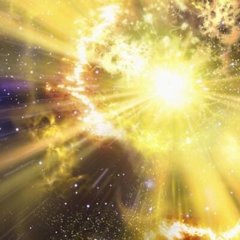-
Content count
4,406 -
Joined
-
Last visited
-
Days Won
32
Everything posted by Cobie
-
.
-
In your opinion, what is 巫 (wu1 - witch)?
-
Righto, so this is 祭祀文化 (jìsì wénhuà - sacrificial culture). ~~~ 祭祀 jìsì - to offer sacrifices; to worship {崇拜 chóngbài - to worship} 文化 wénhuà - culture 祖先 zǔxiān - ancestors
-
“A shaman in shamanism is considered to be a person who has mastered mysterious knowledge and has the ability to enter the state of "man-god", with the ability to prophesy, heal, communicate with the spiritual world, and travel to the spiritual world.” 薩滿信仰中的薩滿被認為是掌握神秘知識,有能力進入「人神」狀態的人,有著預言、治療,與屬靈世界溝通,以及旅行到屬靈世界的能力。 Sà mǎn xìnyǎng zhōng de sà mǎn bèi rènwéi shì zhǎngwò shénmì zhīshì, yǒu nénglì jìnrù `rén shén'zhuàngtài de rén, yǒuzhe yùyán, zhìliáo, yǔ shǔ líng shìjiè gōutōng, yǐjí lǚxíng dào shǔ líng shìjiè de nénglì. https://zh.wikipedia.org/zh-tw/萨满教
-

Why is the medicine buddha blue? Did he come from hinduism?
Cobie replied to Takingcharge's topic in Buddhist Discussion
Interesting that ‘Gotama’ means ‘bright light-darkness’. ~~~ Sanskrit सिद्धार्थ (siddhārtha, “one who has accomplished an aim or object, successful, prosperous”), from सिद्ध (siddha, “achievement”) + अर्थ (artha, “meaning, purpose”). -

Why is the medicine buddha blue? Did he come from hinduism?
Cobie replied to Takingcharge's topic in Buddhist Discussion
The name Gautam (also transliterated as Gautama or Gauthama and a vrddhi patronymic of Gotama) is one of the ancient Indian names and is derived from the Sanskrit roots "gŐ(गः)" and "tama (तम)". "Tama" means "darkness" and "gŐ" means inter alia "bright light". https://en.wikipedia.org/wiki/The_Buddha -
“hello” 2u2. Welcome to the forum.
-
Interesting. By this way of looking at it, I consider Jesus a shaman.
-
In your opinion, what is “sacrificial culture”? And how is it different from “shaman”? ~~~ https://anthropoetics.ucla.edu/ap0102/china/ “… oracular activity typical of the Shang …”
-
Thought better of it.
-
In your opinion, what does a shaman do? And how is it different from 巫 ?
-
Yes, Confucius was a clever clogs - “All people are impermanent, so none of them can be witch doctors” [they would have cured themselves ]. Clearly most of the ancient Chinese had another mindset, as they did practice shamanism. (See post above and https://www.thedaobums.com/topic/54424-jade-emperor/?do=findComment&comment=1000505 )
-
Exactly. 薩滿 sà mǎn The meaning of the separate characters is irrelevant, they were chosen for their sound. I think so too, because I see them used interchangeably: The Shang period had two methods to enter in contact with divine ancestors: the first is the numinous-mystical wu (巫) practice, involving dances and trances; and the second is the method of the oracle bones ...” https://en.wikipedia.org/wiki/Chinese_shamanism The tradition of shamanism in China began in prehistoric times “… 薩滿信仰在中國的傳統始於史前時代 …” sà mǎn xìnyǎng zài zhōngguó de chuántǒng shǐ yú shǐqián shídài https://zh.wikipedia.org/zh-hant/萨满教
-

A Conversation with ChatGPT about spiritual practice, no-mind, neidan and emotions
Cobie replied to Geof Nanto's topic in Daoist Discussion
Not always, see dictionary, “… to create a false or misleading impression … Statistics sometimes lie” https://www.merriam-webster.com/dictionary/lie -
Hi DA WEI. Welcome to the forum. Yes, I’d like to hibernate (like the moomintrolls ).
-
@Lairg thank you for your reply. ~~~ In Mahapralaya the ‘void’ is total darkness. … In Daoism the ‘void’ is total light only. 無極 wu2 ji2 - “no ridgepole“ https://en.wikipedia.org/wiki/Wuji_(philosophy) @ChiDragon Why is the void ‘darkness’ for some and ‘light’ for others?
-
Interesting. ~~~ re void (I read in your link that) in Mahapralaya the ‘void’ is total darkness. “.. there is pitch darkness …” In Daoism the ‘void’ is total light only. 無極 wu2 ji2 - “no ridgepole“ https://en.wikipedia.org/wiki/Wuji_(philosophy) ~~~ re both have undivided/divided (From your link) in Mahapralaya (in the void), “The day and the night are not demarcated.” Now there is “day and night” In Daoism, 無極 wu2 ji2 - no ridgepole Now there is 太極 tai4 ji2 - big ridgepole https://en.wikipedia.org/wiki/Taiji_(philosophy) Interesting. If I understand well, “intelligence and energy” preceding ‘love’. For some life goes the other way round, and then round again. I agree.
-
Thanks for your reply.
-
Are you acting as admod here?
-
Timeline of Chinese dynasties http://afe.easia.columbia.edu/timelines/china_timeline.htm
-
novel idea that “Shang Dynasty … thought to mark the beginning of Chinese civilization: characterized by … practice of divination … “ https://www.researchgate.net/publication/287814899_A_Re-Examination_of_the_Ban_on_Witchcraft_during_the_Song_Dynasty_from_the_Perspective_of_Legislature “The Shang period had two methods to enter in contact with divine ancestors: the first is the numinous-mystical wu (巫) practice, involving dances and trances; and the second is the method of the oracle bones ...” https://en.wikipedia.org/wiki/Chinese_shamanism I agree. Witchcraft definitely predated the Qing. E.g. see “… the Song government … banned … the "illegal" witchcraft …” [Song predates the Qing] https://www.researchgate.net/publication/287814899_A_Re-Examination_of_the_Ban_on_Witchcraft_during_the_Song_Dynasty_from_the_Perspective_of_Legislature



